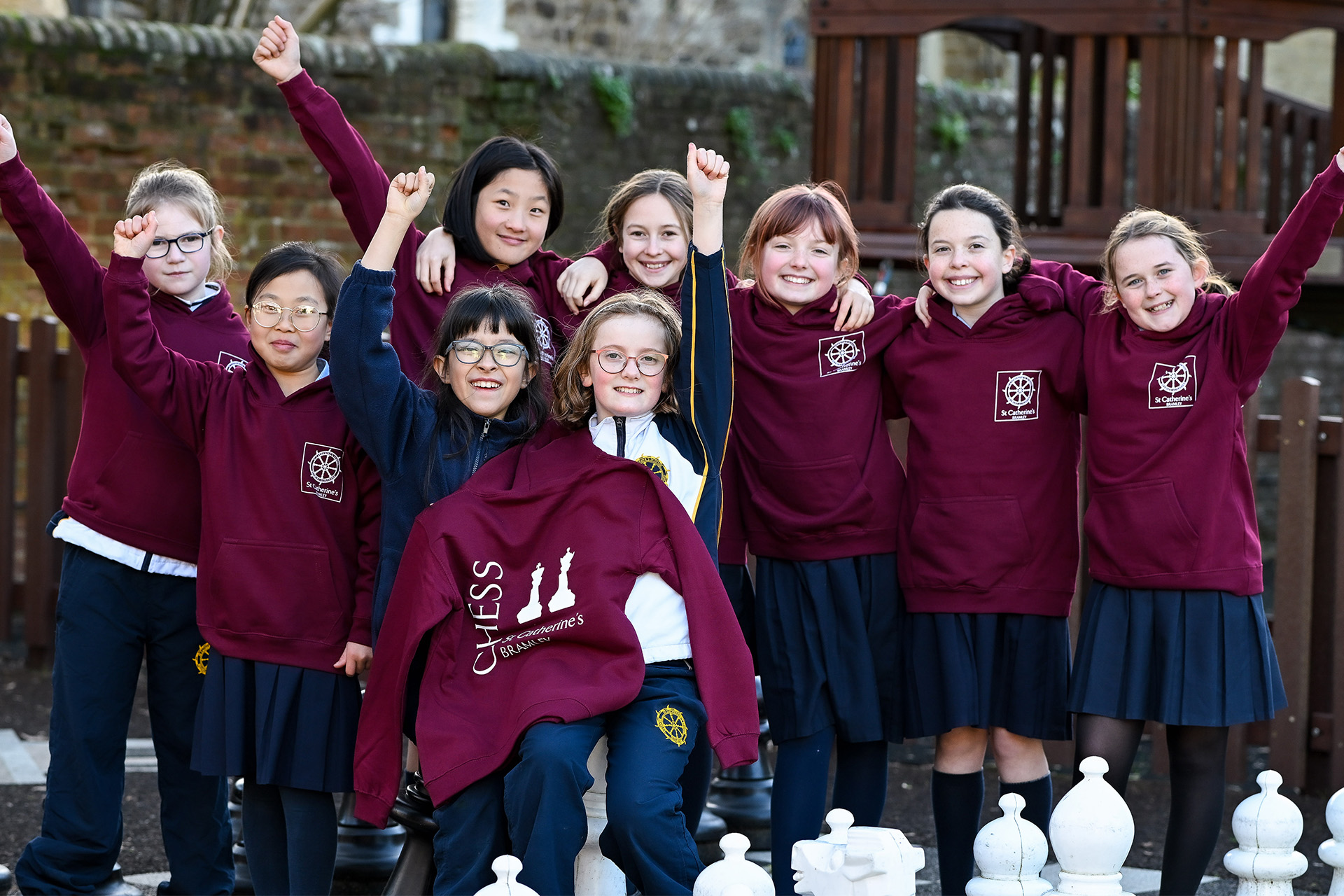She Plays To Win!
By
3 months ago
Girls' chess success at St Catherine's Bramley

Chess is often regarded as a game of intellect, strategy, and patience. While historically dominated by men, the tides are shifting, and girls and women are increasingly making their mark in the chess world. Learning chess offers numerous benefits that transcend the game itself, and it is emerging that with the right opportunities girls can be just as successful as their male counterparts.
One of the primary advantages of learning chess is the cognitive development it fosters. The game requires players to think several moves ahead, which enhances problem-solving skills, critical thinking, and the ability to foresee consequences. These cognitive benefits extend far beyond the chessboard, influencing other areas of learning and academic development. Chess helps improve memory, concentration, and pattern recognition, all of which are valuable assets in fields ranging from mathematics and science to the arts and social sciences.
Chess also cultivates emotional intelligence. It teaches players how to cope with setbacks, accept when to take a draw and learn from games lost. One pupil told me recently that she realised that she learnt more from her losses than her wins! The game encourages resilience, as players learn to accept failure, analyse their mistakes, and come back stronger. It also nurtures patience, as success often requires long hours of practice and an understanding that victories are the result of sustained effort, not instant gratification. In fact, several studies and anecdotal evidence suggest that girls may even possess certain qualities that contribute to their success at the board. For instance, it could be argued that girls tend to approach chess with greater emotional intelligence, which helps them remain calm and composed during tense moments. This emotional control is a crucial asset in competitive settings, where mental fortitude often outweighs raw talent.
The increasing success of female chess players, despite a history of underrepresentation, is good to see. Here at St Catherine’s, we have a thriving chess club of 30 Prep pupils who enjoy playing matches against local schools. Catching the pupils while they’re young is key and the girls learn quickly that age really doesn’t matter in chess, making it a rather unique fixture in comparison to other sports.
We have been proud sponsors and hosts to the annual ECF Girls’ Chess Tournament since its inception in 2014 and anticipate record numbers at our semi-finals this year with 300 players from across England battling across the boards. From beginners to internationals, this is a truly unique event and Andrew Martin, resident chess coach and tournament director recognises that the collaborative element and social aspect are key to its success. ‘Girls competing in teams of 3, ensures a sense of camaraderie which the girls really enjoy.’ St Catherine’s School will field 8 teams in the U11 category and 3 teams in the U19 category. Over 33 Schools from across the country are taking part.
The rise of successful female chess players, such as Judit Polgár, Hou Yifan, and England’s own Jovanka Houska (Women’s Grandmaster and one of the official commentators on the recent World Championship match), proves that with the right training and encouragement, girls can achieve the highest levels of success in chess. By embracing chess as a tool for intellectual and personal growth, girls are not only proving their prowess in the game but also challenging traditional gender stereotypes in competitive arenas.
In conclusion, learning chess provides numerous cognitive and emotional benefits, empowering players with valuable life skills. Girls, with their unique strengths and emotional intelligence, are proving to be formidable chess players, showing that with opportunity and support, they can excel just as much as their male counterparts. Encouraging more girls to learn chess can help bridge gender gaps, fostering a future where the game is truly open to all.



